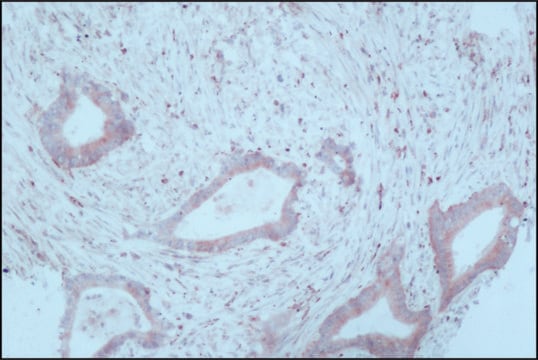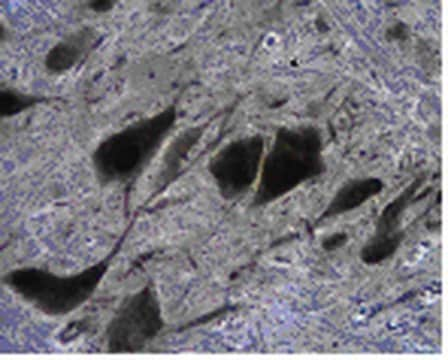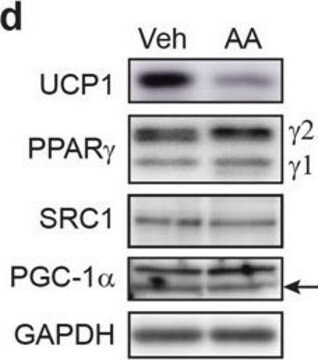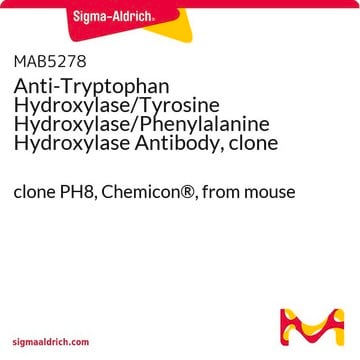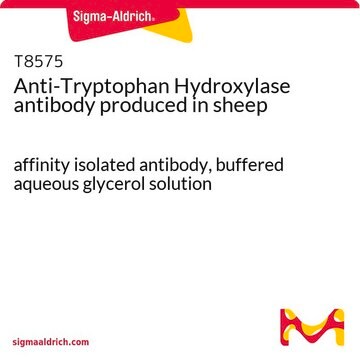SAB4200723
Anti-Tryptophan Hydroxylase antibody, Mouse monoclonal
clone WH-3, purified from hybridoma cell culture
Synonym(s):
Anti-TPH, Anti-TpOH
About This Item
Recommended Products
biological source
mouse
antibody form
purified from hybridoma cell culture
antibody product type
primary antibodies
clone
WH-3, monoclonal
form
buffered aqueous solution
mol wt
antigen ~55 kDa
species reactivity
mouse, human, rabbit, sheep, rat
concentration
~1.0 mg/mL
technique(s)
immunoblotting: 2-4 μg/mL using rabbit pineal gland lysate
immunofluorescence: suitable
immunohistochemistry: suitable
isotype
IgG3
shipped in
dry ice
storage temp.
−20°C
target post-translational modification
unmodified
General description
Immunogen
Application
- immunoblotting
- immunohistochemistry
- immunofluorescence
Biochem/physiol Actions
Physical form
Disclaimer
Not finding the right product?
Try our Product Selector Tool.
Storage Class Code
12 - Non Combustible Liquids
WGK
nwg
Flash Point(F)
Not applicable
Flash Point(C)
Not applicable
Certificates of Analysis (COA)
Search for Certificates of Analysis (COA) by entering the products Lot/Batch Number. Lot and Batch Numbers can be found on a product’s label following the words ‘Lot’ or ‘Batch’.
Already Own This Product?
Find documentation for the products that you have recently purchased in the Document Library.
Our team of scientists has experience in all areas of research including Life Science, Material Science, Chemical Synthesis, Chromatography, Analytical and many others.
Contact Technical Service